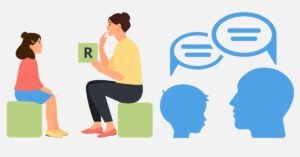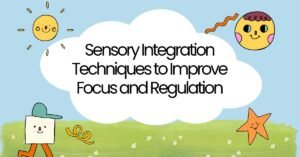The transition to kindergarten is a significant milestone for any child, but for children with special needs, such as autism or speech/language delays, it can be particularly challenging. With the right preparation and support, however, this transition can be a smooth and positive experience. Here’s how you can help your child get ready for this new adventure.
1. Start Early
Begin preparations well in advance. Transitioning to kindergarten involves many changes, and starting early allows your child to gradually adapt to new routines and environments. Talk to your child about what kindergarten will be like, and if possible, visit the school multiple times to familiarize them with the setting.
2. Develop a Routine
Establish a consistent daily routine at home that mimics the school schedule. This includes set times for waking up, meals, play, and bedtime. Having a routine helps children with special needs feel more secure and understand what to expect each day.
3. Work on Social Skills
Encourage social interactions. Playdates with peers or participating in group activities can help children with autism or speech/language delays practice social skills. Teach them how to take turns, share, and communicate their needs. Role-playing different social scenarios can also be beneficial.
4. Focus on Communication
Enhance communication skills. For children with speech or language delays, consistent practice is key. Work with a speech therapist to develop strategies that can be used both at home and in the classroom. Simple activities like reading together, singing songs, and playing word games can also support language development.
5. Visit the School
Familiarize your child with the school environment. Arrange visits to the kindergarten classroom, meet the teacher, and explore the playground. This helps reduce anxiety and makes the new environment feel more familiar and less intimidating.
6. Collaborate with Educators
Work closely with the school staff. Share information about your child’s strengths, challenges, and any specific needs they might have. This collaboration ensures that the teacher is well-prepared to support your child from day one.
7. Use Visual Supports
Incorporate visual aids. Many children with special needs respond well to visual supports like picture schedules, charts, and social stories. These tools can help them understand daily routines, transitions, and expected behaviors.
8. Practice Independence
Encourage independence in daily tasks. Simple activities like dressing, eating, and using the bathroom independently can build confidence and reduce reliance on adults for basic needs. Praise and positive reinforcement can motivate your child to keep trying new things.
9. Prepare for Separation
Address separation anxiety. Gradually help your child become comfortable spending time away from you. Short separations, like staying with a trusted friend or family member, can help build confidence. Always reassure your child that you will return.
10. Stay Positive and Patient
Maintain a positive attitude. Children often pick up on their parents’ emotions, so staying calm and optimistic can help your child feel more secure. Patience is crucial; progress may be slow, but celebrating small achievements can boost your child’s confidence and motivation.
Conclusion
Transitioning to kindergarten is a significant step for any child, and with thoughtful preparation, children with autism or speech/language delays can successfully navigate this change. By starting early, establishing routines, enhancing communication, and collaborating with educators, you can create a supportive and positive experience for your child. Remember, every child is unique, and progress may vary, but with patience, understanding, and consistent support, your child can thrive in their new kindergarten environment.






